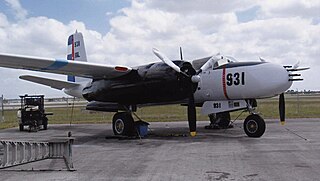 W
WA false flag operation is an act committed with the intent of disguising the actual source of responsibility and pinning blame on a second party. The term is popular amongst conspiracy theory promoters in referring to covert operations of various governments and cabals.
 W
WThe Alianza Americana Anticomunista was believed to be a paramilitary far-right group mainly operating in Colombia between 1978 and 1979.
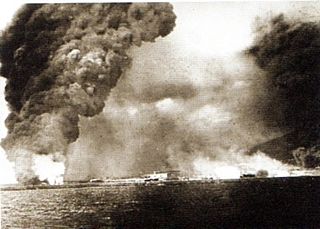 W
WThe Black Sea Raid was an Ottoman naval sortie against Russian ports in the Black Sea on 29 October 1914, supported by Germany, that led to the Ottoman entry into World War I. The attack was conceived by Ottoman War Minister Enver Pasha, German Admiral Wilhelm Souchon and the German foreign ministry.
 W
WBlowing Up Russia: Terror from Within is a book written by Alexander Litvinenko and Yuri Felshtinsky. The authors describe the Russian apartment bombings as a false flag operation that was guided by the Russian Federal Security Service to justify the Second Chechen War and bring Vladimir Putin to power. The story was initially printed by Yuri Shchekochikhin in a special issue of Novaya Gazeta in August 2001 and published as a book in 2002. In Russia the book was prohibited because it divulged state secrets, and it was included in the Federal List of Extremist Materials. However, it was published in more than twenty other countries and translated into twenty languages.
 W
WOn 11 April 2017, the tour bus of the German football team Borussia Dortmund was attacked with roadside bombs in Dortmund, Germany. Three bombs exploded as the bus ferried the team to the Westfalenstadion for the first leg of their quarter-final against Monaco in the UEFA Champions League. One of the team's players, Marc Bartra, and a policeman was wounded, but the strengthened windows of the bus prevented casualties.
 W
WThe 1988 Cannes and Nice attacks were bombings carried out by neo-Nazi extremists against Sonacotra immigrant hostels in 1988, which killed one person and hurt sixteen.
 W
WOn 7 March 1976 a car bomb exploded outside the Three Star Inn pub, in Castleblayney, County Monaghan, killing one man and injuring 17 other people. The attack has been attributed to the Glenanne gang
 W
WCelle Hole was a breach in the outer wall of the prison of Celle, Germany. First used on July 25, 1978, the name was part of a campaign by one of the West German secret services and the GSG 9 in an attempt to lay blame on the Red Army Faction, West Germany's most active and prominent left-wing terrorist group. However, the incident was revealed in 1986 to be a plot by the government, a False flag operation, much to the embarrassment of the government. The Verfassungsschutz used the name 'Operation Fire Magic'.
 W
WThe 1973 Chilean coup d'état was a military coup in Chile that deposed the Popular Unity government of President Salvador Allende. On 11 September 1973, after an extended period of social unrest and political tension between the opposition-controlled Congress and the socialist President, as well as economic warfare ordered by U.S President Richard Nixon, a group of military officers led by General Augusto Pinochet and Admiral José Toribio Merino seized power in a coup, ending civilian rule.
 W
WAlicia Domon, Caty, was a Roman Catholic religious sister from France who was one of two French nationals in Argentina to be "disappeared" in December 1977 by the military dictatorship of the National Reorganization Process. She was among a dozen people associated with the Mothers of the Plaza de Mayo, a human rights group, who were kidnapped and taken to the secret detention center at ESMA.
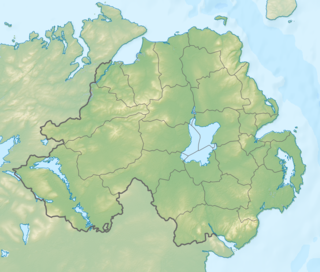 W
WDuring the evening of 19 December 1975, two coordinated attacks were carried out by the Ulster Volunteer Force (UVF) in pubs either side of the Irish border. The first attack, a car bombing, took place outside Kay's Tavern, a pub along Crowe Street in Dundalk, County Louth, Republic of Ireland - close to the border. The second, a gun and bomb attack, took place at Donnelly's Bar & Filling Station in Silverbridge, County Armagh, just across the border inside Northern Ireland. The attack has been linked to the Glenanne gang, a group of loyalist militants who were either members of the UVF, the Ulster Defence Regiment (UDR), the Royal Ulster Constabulary (RUC) and the closely linked UVF paramilitary the Red Hand Commando (RHC), some of the Glenanne gang were members of two of these organizations at the same time like gang leaders Billy Hanna who was in both the UVF and the UDR and who fought for the British Army during the Korean War and John Weir who was in the UVF and was a sergeant in the RUC. At least 25 UDR men and police officers were named as members of the gang. The Red Hand Commando claimed to have carried out both attacks.
 W
WLéonie Duquet was a French nun who was arrested in December 1977 in Buenos Aires, Argentina, and "disappeared". She was believed killed by the military regime of Argentine President Jorge Rafael Videla during the Dirty War. Alice Domon, a French nun working with Duquet, disappeared a few days later. They had been working in poor neighborhoods of Buenos Aires in the 1970s and supported the Mothers of the Plaza de Mayo, founded in 1977. Despite repeated efforts by France to trace the sisters, the Argentine military dictatorship was unresponsive. In 1990 a French court in Paris tried Argentine Captain Alfredo Astiz, known to have arrested Duquet and believed implicated in the "disappearance" of Domon, for kidnapping the two sisters. He was convicted and sentenced to life imprisonment in absentia. In Argentina at the time, he and other military and security officers were shielded from prosecution by Pardon Laws passed in 1986 and 1987. These were repealed in 2003 and ruled unconstitutional in 2005, and the government re-opened prosecution of war crimes.
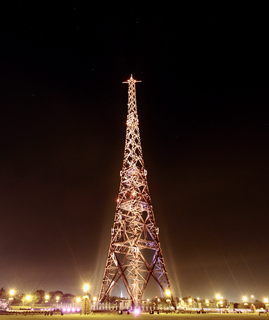 W
WThe Gleiwitz incident was a false flag attack on the German radio station Sender Gleiwitz, staged by Nazi Germany on the night of 31 August 1939. Along with some two dozen similar incidents, the attack was manufactured by Germany as a casus belli to justify the invasion of Poland, which began the next morning. The attackers posed as Polish nationals.
 W
WThe 1954 Guatemalan coup d'état, code-named Operation PBSuccess, was a covert operation carried out by the U.S. Central Intelligence Agency (CIA) that deposed the democratically elected Guatemalan President Jacobo Árbenz and ended the Guatemalan Revolution of 1944–1954. It installed the military dictatorship of Carlos Castillo Armas, the first in a series of U.S.-backed authoritarian rulers in Guatemala.
 W
WOperation Himmler was a 1939 false flag project planned by Nazi Germany to create the appearance of Polish aggression against Germany, which was subsequently used by the Nazis to justify the invasion of Poland. This included staging false attacks on themselves using innocent people or concentration camp prisoners. Operation Himmler was arguably the first act of the Second World War in Europe.
 W
WThe 1953 Iranian coup d'état, known in Iran as the 28 Mordad coup d'état, was the overthrow of the democratically elected Prime Minister Mohammad Mosaddegh in favour of strengthening the monarchical rule of the Shah, Mohammad Reza Pahlavi on 19 August 1953, orchestrated by the United States and the United Kingdom, and carried out by the Iranian military.
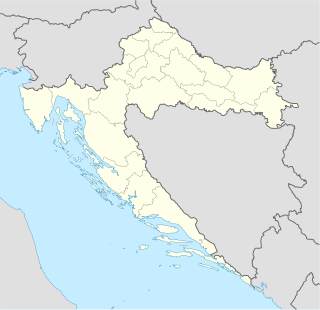 W
WOperation Labrador was a false flag operation carried out by the Yugoslav Air Force's Counterintelligence Service (KOS) in the Croatian capital city of Zagreb during the early stages of the Croatian War of Independence. It was devised as a series of terrorist attacks intended to create an image of Croatia as a pro-fascist state. Two bombings were carried out on 19 August 1991, with one at the Jewish Community Centre and a second near Jewish graves at the Mirogoj Cemetery; there were no casualties. Additional attacks targeted the national railway network and were designed to implicate the Croatian President. Operation Labrador was complemented by Operation Opera — a propaganda campaign devised by the KOS to feed disinformation to the media.
 W
WThe Lavon affair was a failed Israeli covert operation, codenamed Operation Susannah, conducted in Egypt in the summer of 1954. As part of the false flag operation, a group of Egyptian Jews were recruited by Israeli military intelligence to plant bombs inside Egyptian-, American-, and British-owned civilian targets: cinemas, libraries, and American educational centers. The bombs were timed to detonate several hours after closing time. The attacks were to be blamed on the Muslim Brotherhood, Egyptian Communists, "unspecified malcontents", or "local nationalists" with the aim of creating a climate of sufficient violence and instability to induce the British government to retain its occupying troops in Egypt's Suez Canal zone. The operation caused no casualties among the population, but cost the lives of four operatives: two cell members who committed suicide after being captured; and two operatives who were tried, convicted, and executed by the Egyptian authorities.
 W
WThe phrase "little green men" refers to masked soldiers of the Russian Federation in unmarked green army uniforms and carrying modern Russian military weapons and equipment who appeared during the Ukrainian crisis of 2014.
 W
WThe Marxist–Leninist Party of the Netherlands was a fake pro-China communist party in the Netherlands set up by the Dutch secret service BVD to develop contacts with the Chinese government for espionage purposes. The MLPN existed from 1968 to the early 1990s and was led throughout its existence by Pieter Boevé, who used the pseudonym Chris Petersen.
 W
WThe Miami Showband killings was an attack on 31 July 1975 by the Ulster Volunteer Force (UVF), a loyalist paramilitary group. It took place on the A1 road at Buskhill in County Down, Northern Ireland. Five people were killed, including three members of The Miami Showband, who were one of Ireland's most popular cabaret bands.
 W
WThe Mukden Incident, or Manchurian Incident, was an event staged by Japanese military personnel as a pretext for the 1931 Japanese invasion of Manchuria.
 W
WBenno Ohnesorg was a West German university student killed by a policeman during a demonstration in West Berlin. His death spurred the growth of the left-wing German student movement.
 W
WOperation Northwoods was a proposed false flag operation against the Cuban government that originated within the U.S. Department of Defense (DoD) and the Joint Chiefs of Staff (JCS) of the United States government in 1962. The proposals called for the Central Intelligence Agency (CIA) or other U.S. government operatives to both stage and actually commit acts of terrorism against American military and civilian targets, blaming them on the Cuban government, and using it to justify a war against Cuba. The possibilities detailed in the document included the possible assassination of Cuban immigrants, sinking boats of Cuban refugees on the high seas, hijacking planes to be shot down or given the appearance of being shot down, blowing up a U.S. ship, and orchestrating violent terrorism in U.S. cities. The proposals were rejected by President John F. Kennedy.
 W
WThe Piazza Fontana bombing was a terrorist attack that occurred on 12 December 1969 when a bomb exploded at the headquarters of Banca Nazionale dell'Agricoltura in Piazza Fontana in Milan, Italy, killing 17 people and wounding 88. The same afternoon, three more bombs were detonated in Rome and Milan, and another was found unexploded.
 W
WThe Plaza Miranda bombing occurred during a political campaign rally of the Liberal Party at Plaza Miranda in the district of Quiapo, Manila in the Philippines on August 21, 1971. It caused nine deaths and injured 95 others, including many prominent Liberal Party politicians.
 W
WSS San Flaviano was a 1950s British oil tanker owned by Eagle Oil and Shipping Company, a British subsidiary of Royal Dutch Shell. She was built by Cammell Laird in England in 1956 and attacked and sunk by the CIA in Borneo in 1958.
 W
WThe San Patricio Church massacre was the murder of three priests and two seminarians of the Pallottine order on July 4, 1976, during the Dirty War, at St. Patrick's Church, located in the Belgrano neighborhood in the City of Buenos Aires, Argentina. The victims were priests Alfredo Leaden, Alfredo Kelly, and Pedro Duffau and seminarians Salvador Barbeito and Emilio Barletti. The murders were ordered by an Argentine Navy admiral.
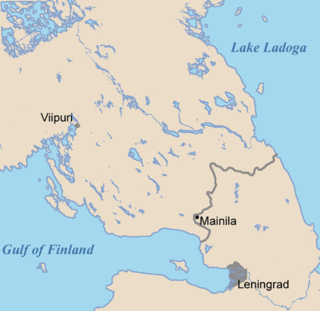 W
WThe Shelling of Mainila was a military incident on 26 November 1939 in which the Soviet Union's Red Army shelled the Soviet village of Mainila. The Soviet Union declared that the fire originated from Finland across the nearby border and claimed to have had losses in personnel. Through that false flag operation, the Soviet Union gained a great propaganda boost and a casus belli for launching the Winter War four days later.
 W
WThe Tagantsev conspiracy was a non-existent monarchist conspiracy fabricated by the Soviet secret police in 1921 to terrorize intellectuals who might be in a potential opposition to the ruling Bolshevik regime As its result, more than 800 people, mostly from scientific and artistic communities in Petrograd, were arrested on false terrorism charges, out of which 98 were executed and many were sent to concentration camps. Among the executed was the poet Nikolay Gumilev, the co-founder of the influential Acmeist movement.
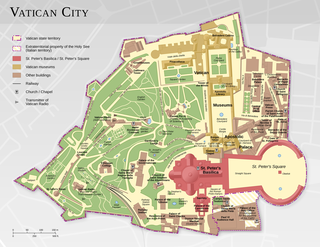 W
WBombings of Vatican City occurred twice during World War II. The first occasion was on the evening of 5 November 1943, when a plane dropped bombs on the area south-west of Saint Peter's Basilica, causing considerable damage but no casualties. The second bombing, which affected only the outer margin of the city, was at about the same hour on 1 March 1944, and caused the death of one person and the injury of another.
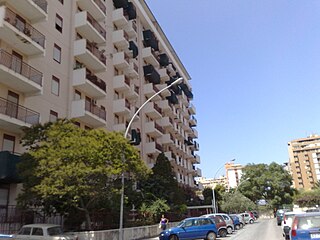 W
WThe via D'Amelio bombing was a terror attack by the Sicilian Mafia which took place in Palermo, Sicily, Italy on 19 July 1992. It killed anti-mafia magistrate Paolo Borsellino and five members of his police escort: Agostino Catalano, Emanuela Loi, Vincenzo Li Muli, Walter Eddie Cosina and Claudio Traina.
 W
WŻeligowski's Mutiny was a Polish false flag operation led by General Lucjan Żeligowski in October 1920, which resulted in the creation of the Republic of Central Lithuania. Polish Chief of State Józef Piłsudski surreptitiously ordered Żeligowski to carry out the operation, and revealed the truth several years later. The area was formally annexed by Poland in 1922 and internationally recognized as Polish territory in 1923. Nevertheless, Lithuania continued to claim the Vilnius region.